“Sustainability is the key to our survival on this planet and will also determine success on all levels.”
AEEI is aware and appreciates the evolution of governance and that the Group’s core purpose, business model, performance, risks, opportunities and sustainable development are inseparable elements of the value-creation process. The Group is aware that the responsibility and accountability, in addition to producing solid financial results, of business leaders include managing the Company’s environmental and social impact, as well as addressing the expectations of stakeholders, including regulators, investors, customers and employees.
The Group continually strives to meet and exceed the benchmarks set by the B-BBEE Codes of Good Practice and in light of this, its initiatives include corporate social investment in different areas and fields. These include skills development, enterprise and supplier development, as well as ensuring that employment equity structures and programmes are in place within the Group.
MATERIAL AREAS OF SUSTAINABILITY
Climate change and energy
Promoting sustainable water usage
Materials and waste management
SUSTAINABILITY GOVERNANCE FRAMEWORK
AEEI’s business is built on a strong foundation, including its business model, core values and principles. Our products and services are the tangible outputs of our business activities and our social and ethical responsibilities guide our day-to-day activities. All forms of sustainability are extremely important in our strategy and operational activities. AEEI’s goal has always been to provide innovative solutions to every subsidiary and client while remaining committed to social responsibility. The full report can be found on www.aeei.co.za.
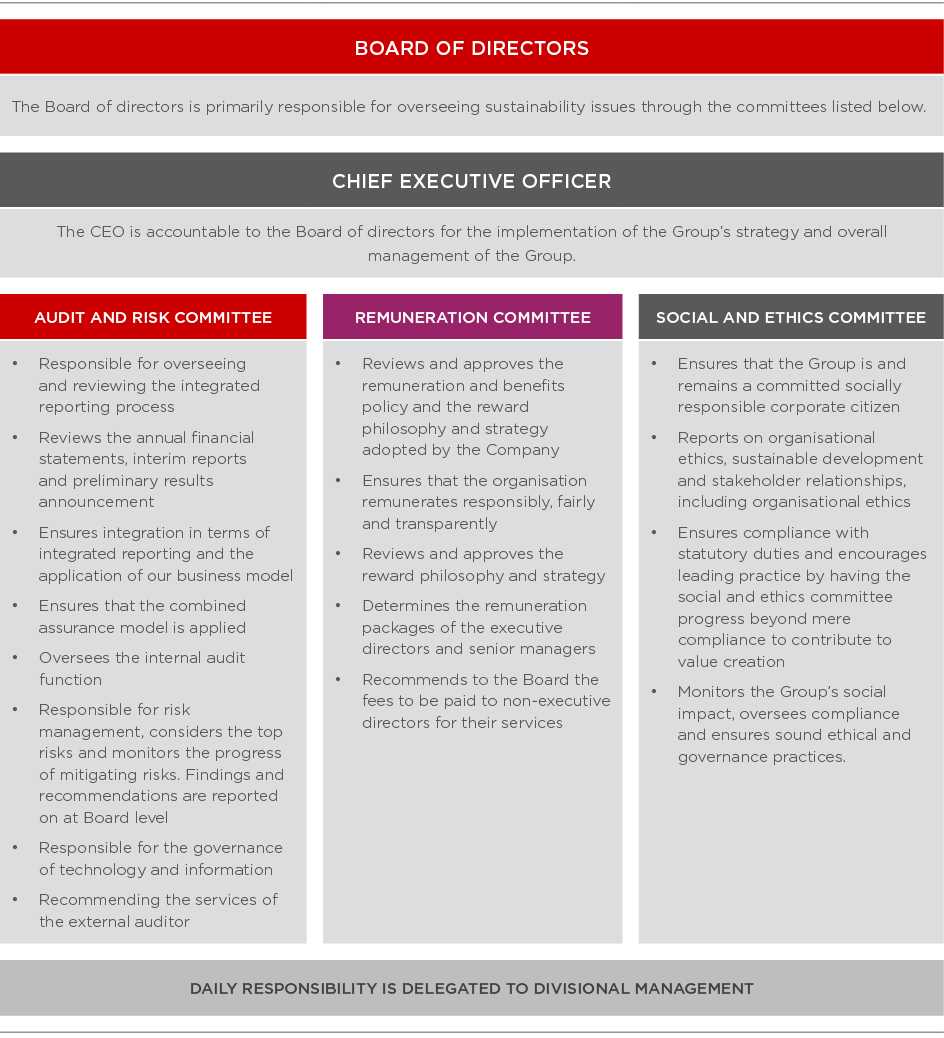
The ultimate responsibility of sustainability rests with the Board and the social and ethics committee has been tasked by the Board to manage and monitor sustainability.
The Board remains firmly committed to the development of intellectual and human capital and in line with this, the performance assessment of senior managers includes an assessment of how they have developed the human capital of the organisation, especially the development of historically disadvantaged individuals. The Board has affirmed its practice with regard to procurement by its subsidiaries from black economic empowerment companies, enterprise and supplier development as well as socioeconomic development. The Group has policies in place to ensure that the subsidiaries act in an environmentally friendly manner that takes into account the existence of the communities in which the subsidiary operations are located.
Besides the careful stewardship of natural resources, the Group continually works towards sustainable development by working towards the eradication of poverty and income inequalities, with the goals being employment, accessing quality and affordable basic services and fostering a stable and just society.
AEEI and its various business units are not considered to make a particularly heavy demand on the natural environment. However, businesses in the AEEI Group are committed to being industry leaders and adding value to the services they provide by implementing sustainable business practices that minimise the impact that their operations have on the environment. Environmental commitments are an integral part of their day-to-day activities. AEEI has a very low direct impact on the environment, but we are affected by the environment in which we operate as well as the impact that climate change in general has on our business. We commit our businesses to a journey of responsible environment stewardship. We acknowledge that a stable economy and a sustainable business require a sustainable environment. Our fishing and brands division works closely with the relevant authorities to safeguard the various fish species and pays careful attention to the environmental impact of its operations.
The Group’s material matters, the stakeholders affected and how we manage them can be found in our Vision 2020 Vision and building relationships with our stakeholders.
(King IVTM – Principles 3, 4, 10, 11, 13, 14, 15 and 16)
MATERIAL MATTERS AND KEY PERFORMANCE INDICATORS – 2017 PROGRESS ON THE SIX CAPITALS:
The following report details the material matters, key performance indicators, our 2017 progress, the risks related to the material issue and the opportunities created by the material matters on the six capitals:
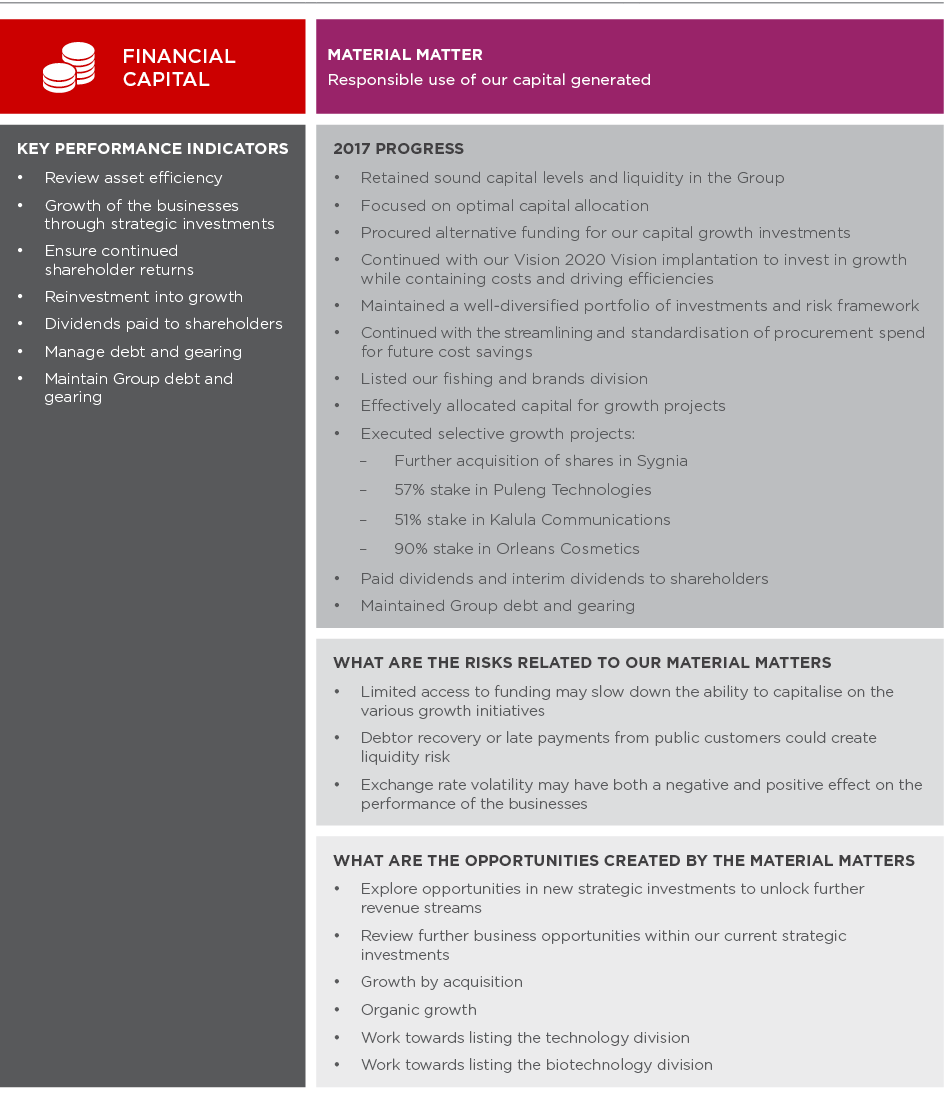
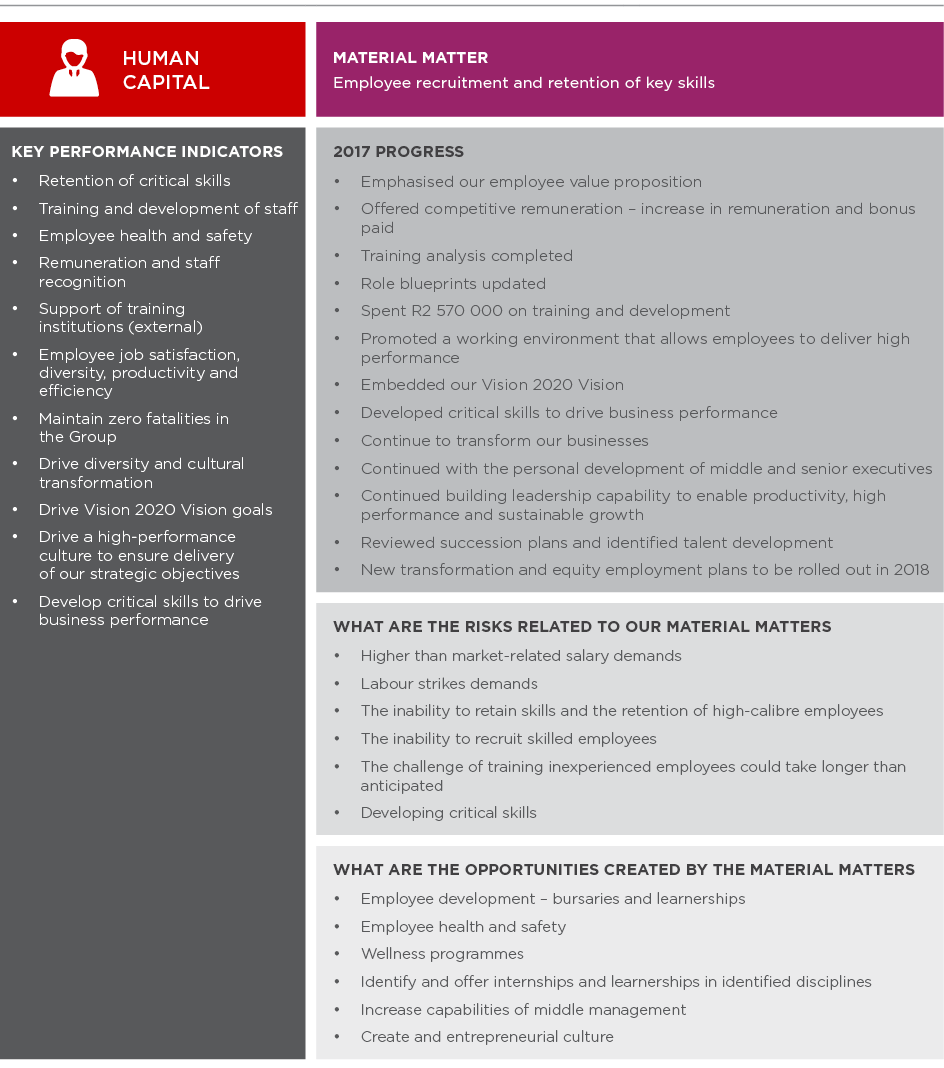
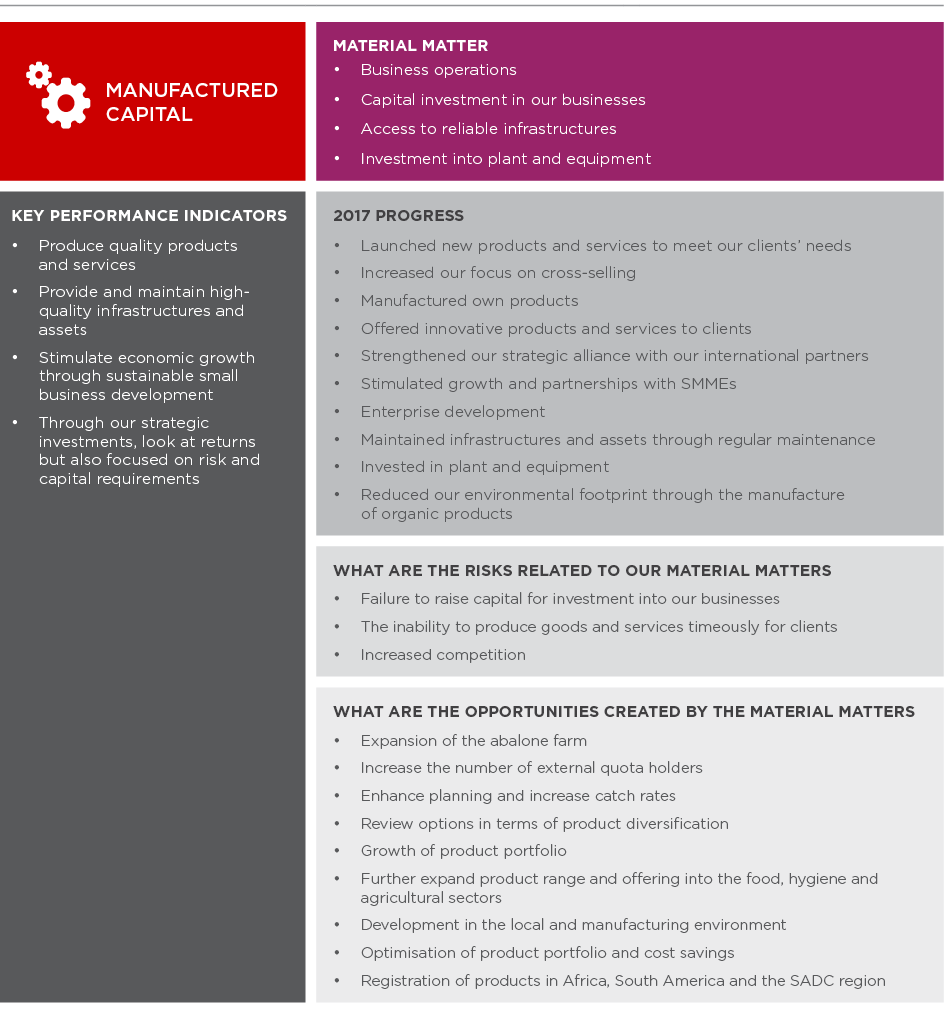
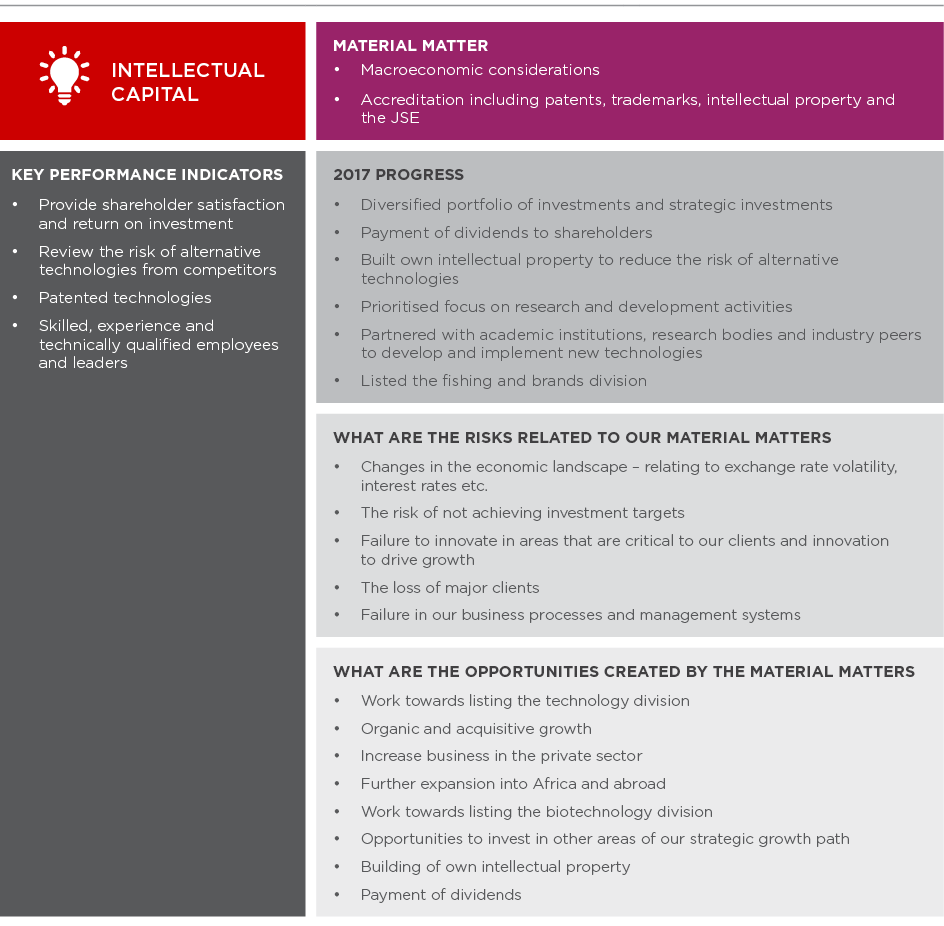
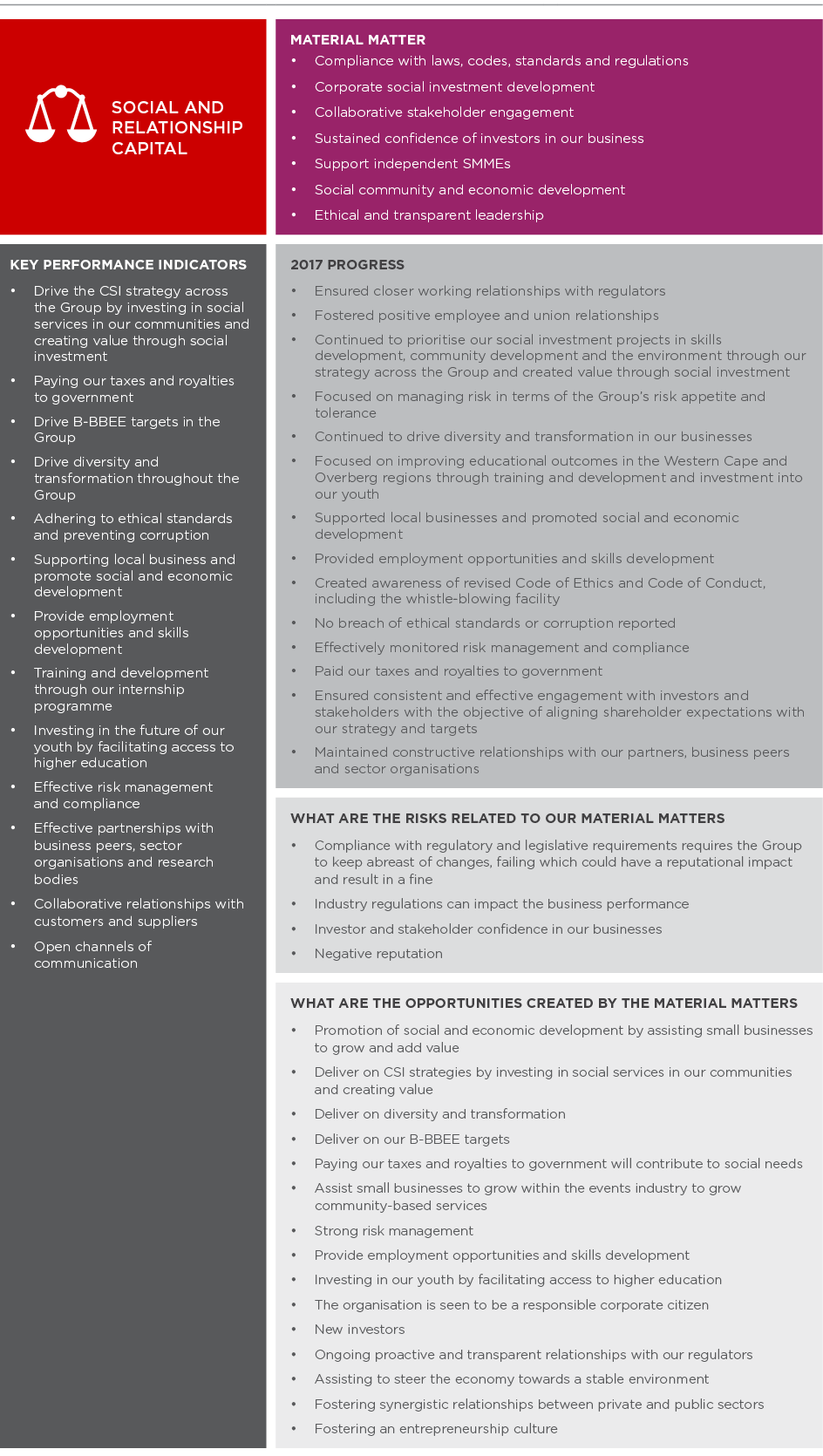
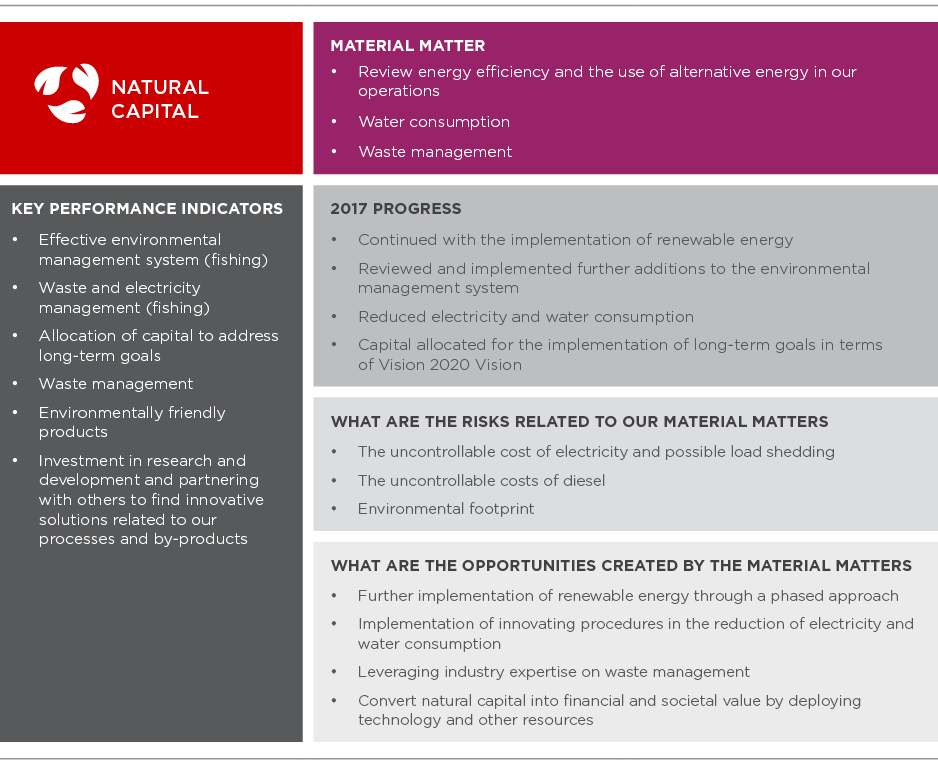
(King IVTM – Principles 4, 5, 11, 13 and 16)
ECONOMIC SUSTAINABILITY
Refer to the value-added statement for more information.
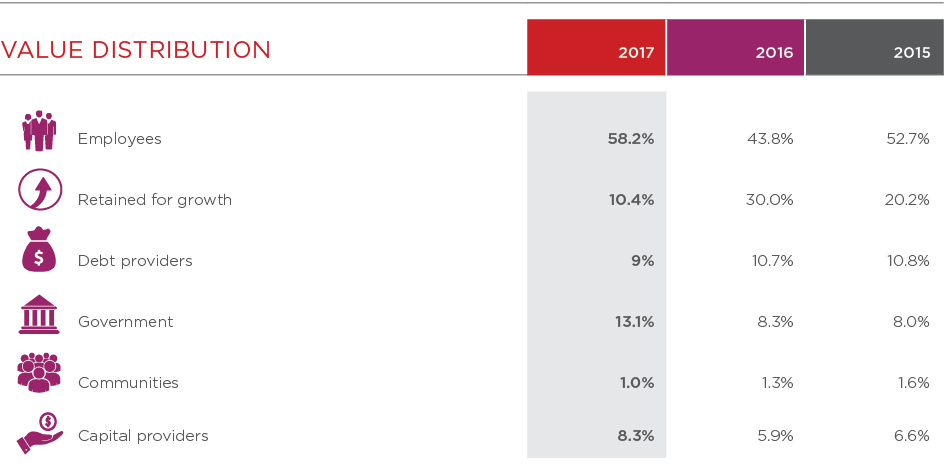
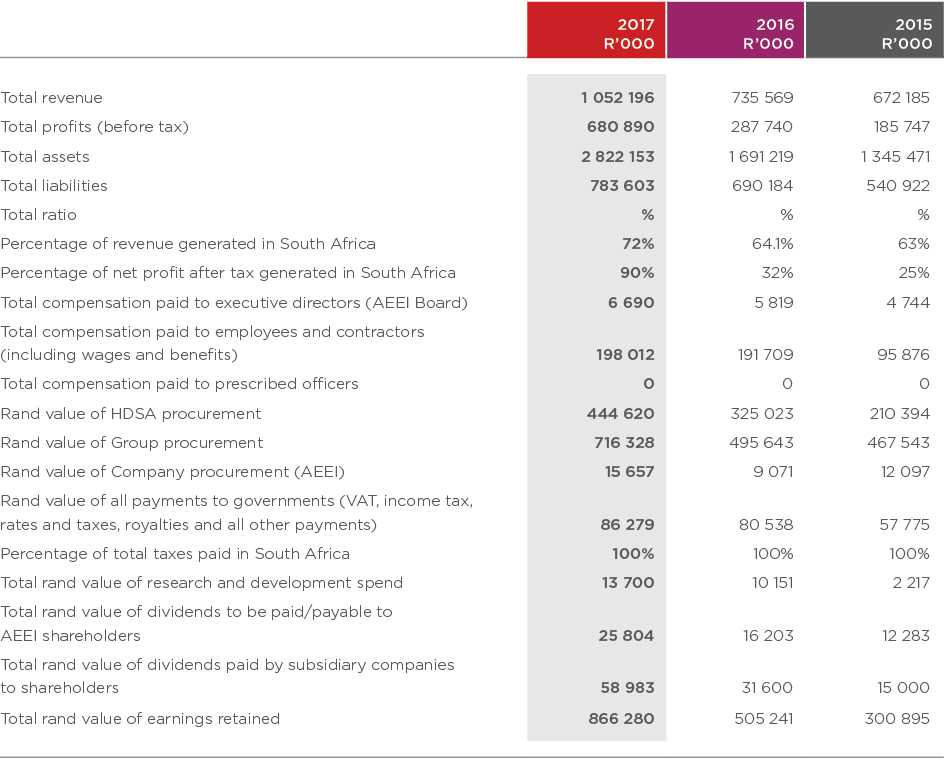
The AEEI Group is not a member of the Carbon Disclosure Project – Driving Sustainable Economies, Water Disclosure Project or a signatory to the UN Global Compact.
Additional information
Integrated Reporting & Assurance Services (IRAS) confirms that AEEI has been independently assessed according to 96 environmental, social and governance (ESG) quantitative comparable data indicators within the Sustainability Data Transparency Index (SDTI) and consistently achieves a data transparency score within the Top 10% of the roughly 300 JSE-listed companies reviewed (1st in the ‘Financial Services – Other’ Sector). Created by IRAS, the SDTI measures listed companies’ commitment to ESG data transparency, allowing stakeholders the opportunity to contrast and compare ESG performance between peer companies, against prior year performance, or against stated commitments and/or targets. For more information contact: [email protected].
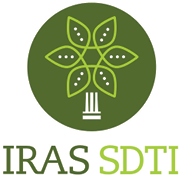
The full sustainability report can be found on: www.aeei.co.za.

